legal resources necessary to hold negligent facilities accountable.
Kentucky Nursing Home Abuse Lawyer
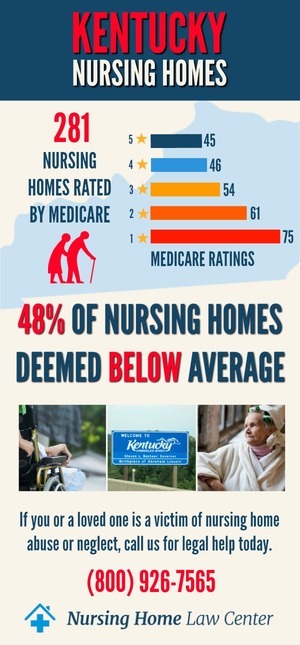 Physical abuse in nursing homes, ranging from improper restraint to outright assault, causes immediate and long-term harm to residents. Such abuse not only results in physical injuries but also instills fear and helplessness in the victims.
Physical abuse in nursing homes, ranging from improper restraint to outright assault, causes immediate and long-term harm to residents. Such abuse not only results in physical injuries but also instills fear and helplessness in the victims.
Our nursing home abuse lawyers at Nursing Home Law Center, LLC are committed to exposing these abusive practices. We provide legal advocacy to ensure the safety and dignity of nursing home patients.
Protecting the Vulnerable: Kentucky Nursing Home Abuse LawyerIn Kentucky, the safety and well-being of caregiving home patients are paramount, yet instances of abuse and neglect are alarmingly prevalent. A Kentucky nursing home abuse lawyer plays a crucial role in safeguarding the rights and dignity of these vulnerable individuals. From physical harm to emotional trauma, the consequences of abuse are profound, necessitating expert legal intervention.
The prevalence of abuse and neglect in Kentucky is a significant concern, with numerous cases often going unreported. Elderly nursing home residents face various forms of mistreatment, ranging from physical assault to neglect of basic needs, all of which can lead to severe physical and emotional pain.
Nursing home abuse attorneys specialize in representing the interests of abused elderly residents. They work tirelessly to hold caregiving homes accountable for their actions or omissions that lead to resident harm. These legal professionals navigate the complex terrain of state or federal laws to seek justice for victims and their family members.
Nursing Home Statistics in Kentucky - Concerning Quality RatingsStatistical data play a crucial role in understanding the extent of nursing home abuse in Kentucky. These numbers highlight the ongoing need for effective legal representation and advocacy for elderly individuals.
In December 2023, CMS (Centers for Medicare and Medicaid Services) conducted an evaluation of nursing homes across the state of Kentucky. The results revealed a significant cause for concern, with 133 out of the 247 nursing homes in Kentucky, accounting for 54% of the total, receiving ratings of "below average" or "much below average" regarding their overall quality of care.
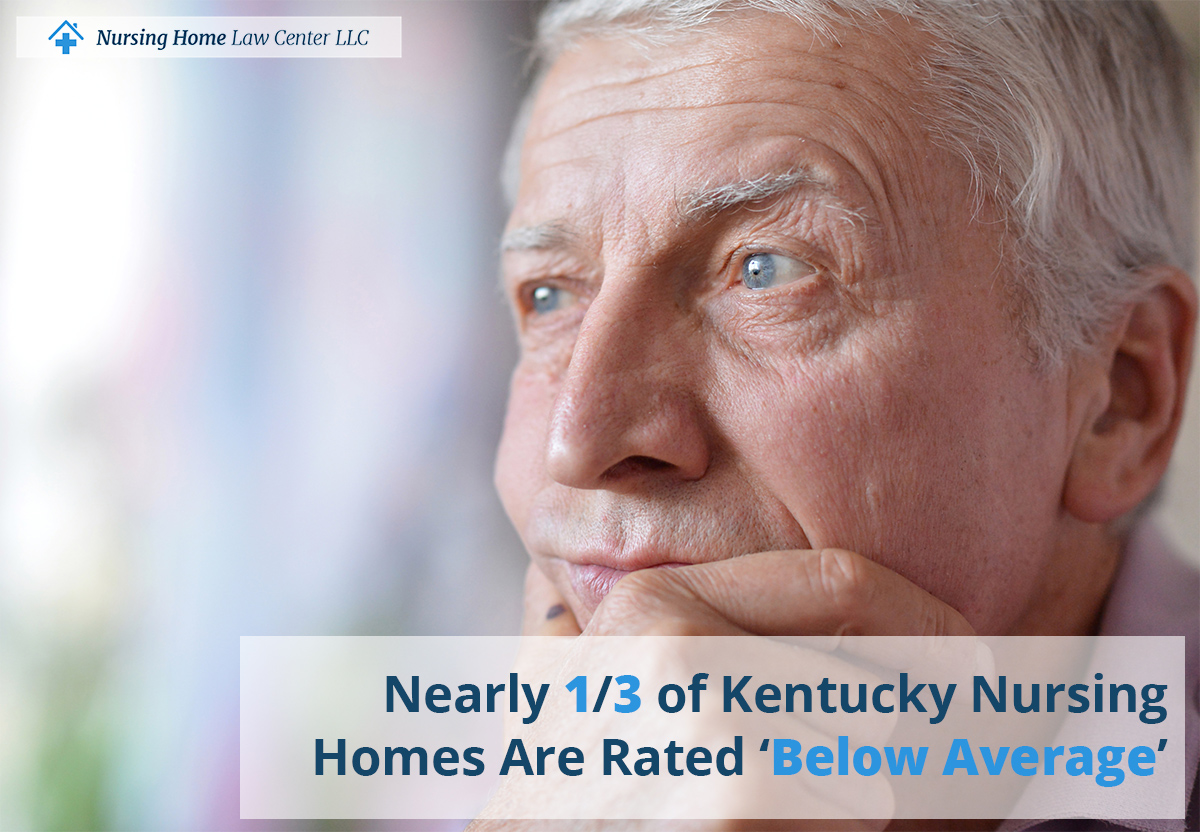 Facilities Cited for Abuse
Facilities Cited for AbuseWithin this distressing statistic, there were specific facilities that inspectors identified as having instances of abuse, further highlighting the pressing need for improved oversight and care within these nursing homes. Here are the current facilities in Kentucky that were found to have inspection reports indicating instances of abuse:
- Chautauqua Health and Rehabilitation
- Danville Centre for Health & Rehabilitation
- Edgewood Estates
- Elliott Nursing and Rehabilitation
- Lake Way Nursing and Rehabilitation Center
- Landmark of Iroquois Park Rehab and Nursing Center
- Landmark of Louisville Rehabilitation and Nursing
- Lyndon Woods Care & Rehab
- Mayfair Manor
- Regency Center
- Ridgeway Nursing & Rehabilitation Facility
- Signature Healthcare at Heritage Hall Rehab & Well
- Westminster Terrace
 Nursing Home Abuse: Risks and Preventative Measures
Nursing Home Abuse: Risks and Preventative MeasuresKnowledge of risks and implementation of preventative measures are vital for reducing the incidence of mistreatment in nursing homes. Kentucky nursing home residents benefit from increased awareness and proactive steps taken by their families and caregivers.
Nursing home neglect attorneys emphasize the importance of reporting every incident to ensure proper action is taken.
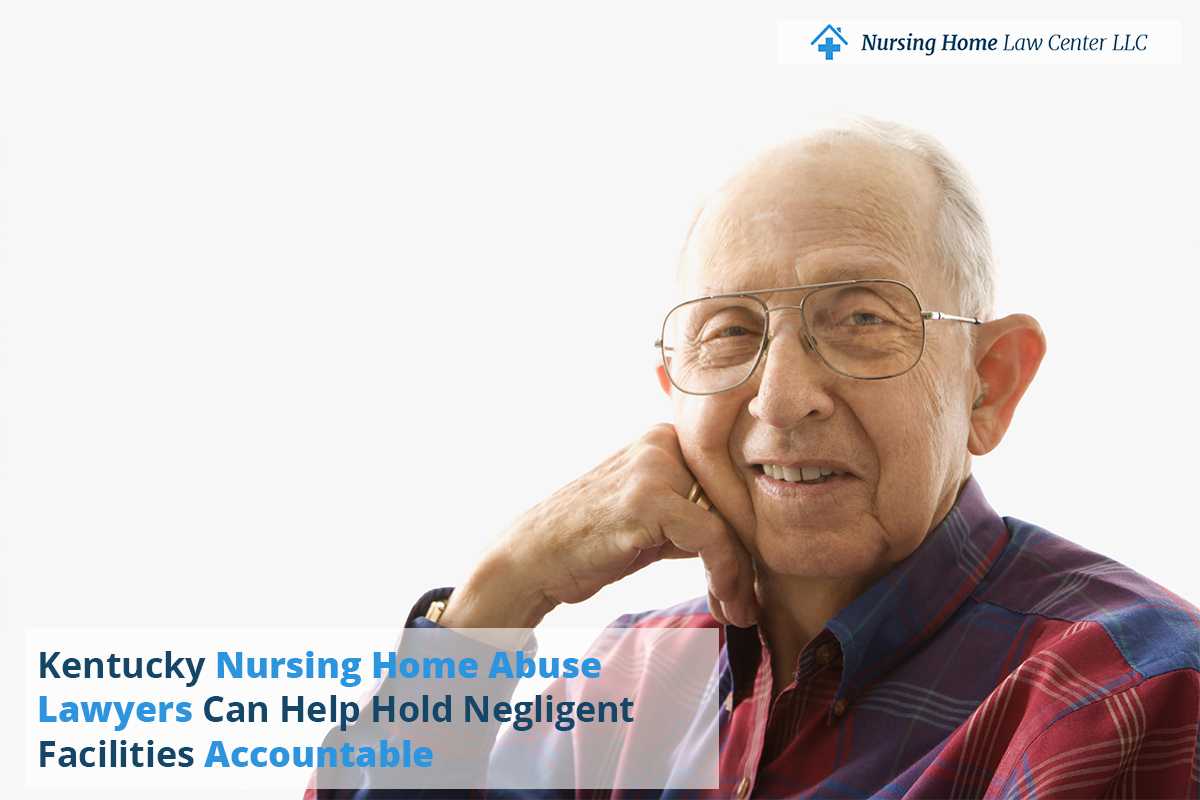 Definition and Types of Abuse
Definition and Types of AbuseUnderstanding the various forms of abuse that occur in nursing homes is vital for effective advocacy and legal action.
- Physical Abuse: This type of abuse involves the intentional use of force that causes pain, broken bones, injury, or distress to the nursing home resident.
- Sexual Abuse: Includes any forced or unwanted sexual interaction, which can be particularly damaging to residents.
- Emotional and Psychological Abuse: This abuse involves verbal and nonverbal behaviors that cause mental distress to residents.
- Neglect: Refers to the failure to meet the basic needs of every elderly person, such as providing adequate food, medical care, and hygiene.
- Financial Exploitation: This abuse entails the illegal or unauthorized use of an elderly person's finances or property.
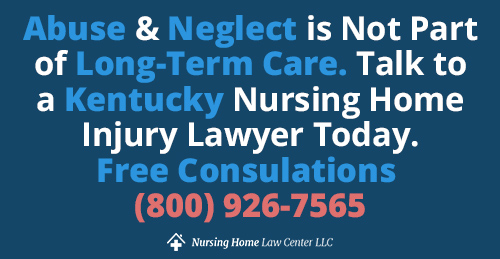 Recognizing the Signs of Elder Abuse and Neglect
Recognizing the Signs of Elder Abuse and NeglectDistinguishing between different types of abuse is crucial for a nursing home abuse attorney. They must comprehensively understand the nuances of each form to advocate for their clients effectively.
Early detection of abuse and neglect is key to preventing further harm to facility patients.
- Physical and Emotional Indicators: Recognizable signs include unexplained injuries, withdrawal, and fearfulness. Nursing home abuse attorneys pay close attention to these indicators when assessing a potential case.
- Financial and Sexual Abuse Symptoms: Unexplained expenses and physical signs of sexual mistreatment are critical symptoms that lawyers investigate. Vulnerable residents are particularly susceptible to these forms of abuse.
Differentiating between abuse and neglect is crucial for legal proceedings and effective advocacy.
- Nursing home abuse encompasses various forms of mistreatment, each requiring a specific legal approach.
- Nursing home neglect fails to provide primary care and necessities. Signs of negligence include poor personal hygiene, lack of adequate food, and insufficient medical care.
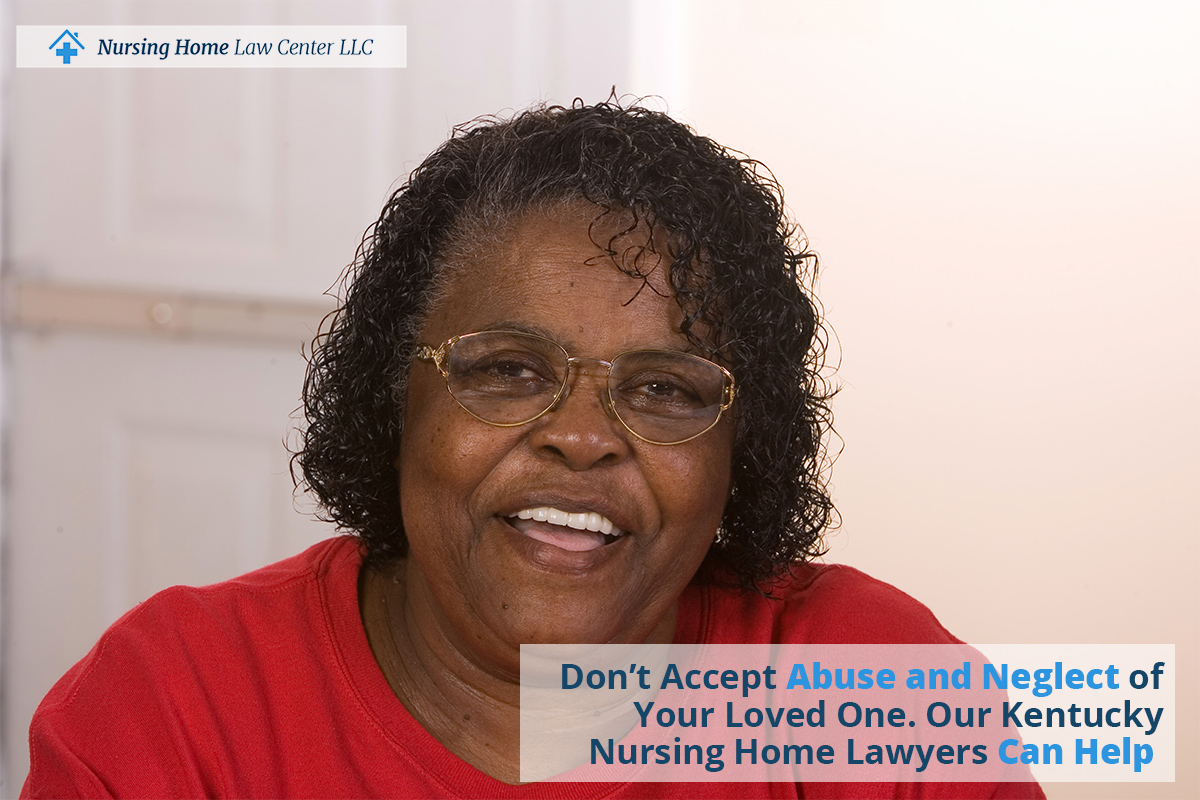 Identifying Responsible Parties
Identifying Responsible PartiesDetermining liability with cases relating to nursing home abuse is essential for achieving justice for victims.
- Beyond Caregivers: Broader liability often extends beyond individual caregivers, including nursing home facility owners, managers, and third parties. Kentucky nursing home neglect attorneys thoroughly investigate to identify all liable parties.
- Legal Accountability for Abuse and Neglect: Various parties can be held legally responsible for mistreatment. This includes not only the direct perpetrators but also those who oversee the operations of the nursing facility.
 Where to Report Nursing Home Abuse in Kentucky
Where to Report Nursing Home Abuse in KentuckyIn Kentucky, reporting elder abuse is a critical step in addressing these issues and preventing further harm.
- Utilizing Adult Protective Services: The Kentucky Health and Family Services department provides avenues for reporting abuse. These state agencies are vital in investigating allegations and protecting elderly patients.
- Legal Channels for Reporting Abuse to Appropriate Authorities:
- Kentucky Adult Protective Services Reporting System
- Kentucky Adult Protective Services
- In case of an emergency, call 911 immediately
Legal assistance is critical for elder abuse victims and their families seeking justice. Kentucky lawyers specializing in elder abuse assist with reporting, nursing home abuse lawsuit building, and advocacy. They provide essential support to victims and their families throughout the legal process.
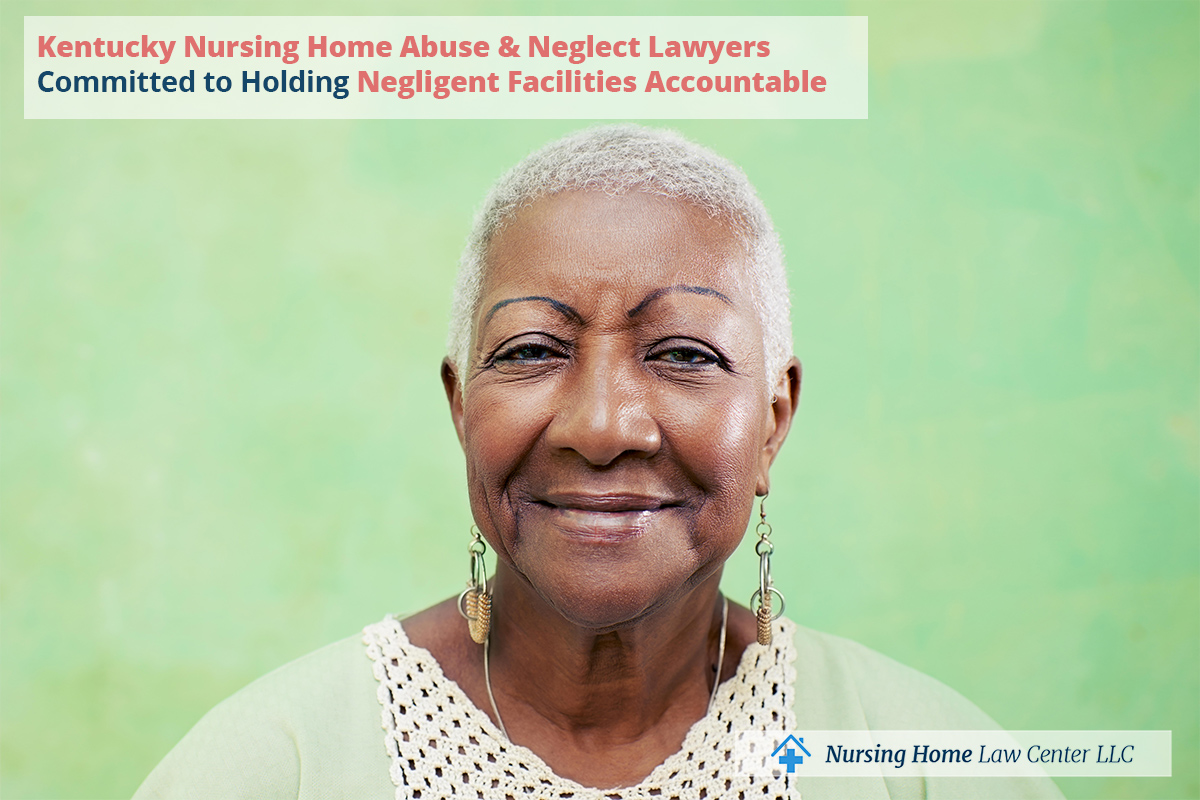 Preparing for Nursing Home Abuse Litigation
Preparing for Nursing Home Abuse LitigationUnderstanding the litigation process is crucial for families seeking legal recourse. Nursing facility abuse lawyers prepare cases meticulously, gathering evidence and building a compelling argument for court.
Identifying High-Risk Individuals for Abuse and NeglectCertain factors increase the risk of mistreatment in nursing and assisted living facilities.
- Factors Increasing Abuse Risk: Factors such as gender, socioeconomic status, and past trauma can make some senior citizens more vulnerable to abuse. Kentucky nursing home neglect attorneys consider these factors when evaluating a case.
- Health Conditions and Vulnerability: Conditions like dementia and other mental impairments increase the risk of abuse. Elderly patients with these conditions require additional protection and vigilant care.
 Nursing Home Wrongful Death: Legal Options and Who Can File a Claim
Nursing Home Wrongful Death: Legal Options and Who Can File a ClaimNursing home wrongful death is a severe issue where an elderly person residing in a nursing or assisted living facility loses their life due to the negligent or intentional actions of staff members. When an elderly person dies as a result of neglect or abuse in a caregiving home, family members often have the option to file a wrongful death claim, seeking compensation for their loss.
In more severe cases of neglect, where malicious intent or extreme negligence is involved, nursing home staff may face criminal charges, particularly in instances involving physical force or egregious neglect leading to a resident's death.
Filing a Nursing Home Abuse ClaimThe parties typically eligible to file a claim include family members such as spouses, children, or other close relatives. These individuals can seek damages such as:
- Loss of companionship
- Emotional distress
- Funeral expenses
In certain situations, the estate of the deceased nursing home resident may file the claim, with a representative of the estate taking legal action on behalf of the deceased.
In building a solid case, obtaining the resident's medical records is crucial to establishing the link between the death and the negligence of the nursing home employees. An investigation into evidence of mistreatment includes signs such as:
- Bed sores
- Failure to provide adequate food leads to malnutrition
- Failure to administer medication or medication errors
It is advisable to consult with a specialized neglect attorney who can navigate the complexities of preventable death claims in caregiving homes and ensure adherence to federal law and specific regulations governing caregiving facilities.
Additionally, testimonies from other residents or former employees can provide further insights into the practices of the staff. Examining the overall physical health and welfare standards of the living facility is necessary to determine if there was a pattern of neglect or abuse. A confidential consultation with an experienced attorney can guide the best course of action.
Preventative Strategies Against Nursing Home AbuseImplementing preventative strategies is critical to safeguarding the well-being of caregiving home facility patients.
- Research and Education: Choosing the right nursing home involves thorough research and understanding care standards. Families must be educated on what constitutes proper care and how to identify signs of abuse or neglect.
- Communication and Regular Visits: Regular communication with residents and frequent visits to the nursing home are crucial. They help monitor the care received and detect signs of nursing home mistreatment early.
Navigating the legal landscape for nursing home abuse requires skilled representation.
- Taking Legal Action Against Nursing Home Neglect and Abuse: Pursuing legal options against negligent nursing facilities involves a comprehensive understanding of Kentucky laws. Nursing home abuse lawyers guide families through the process of suing for negligence and abuse.
- Choosing the Right Legal Representation: Selecting a competent nursing home abuse attorney is vital. Factors to consider include experience, expertise in elder abuse cases, and a track record of successful outcomes.
Our law firm is dedicated to protecting patients' rights and ensuring they receive the justice they deserve.
Nursing Home Abuse: Our Approach to CasesWe employ a thorough and compassionate approach to each case. Our nursing home abuse lawyers understand the emotional and physical toll of abuse on victims and their families and are committed to providing the highest standard of legal representation.
Commitment to Client SuccessOur firm aims to achieve successful client outcomes through settlement negotiations or courtroom litigation. We strive to secure fair compensation and hold responsible parties accountable for their actions.
Hire Our Personal Injury Lawyers for Compensation for Your Nursing Home InjuriesElder abuse in nursing facilities is a grave concern that often goes unnoticed. At Nursing Home Law Center, LLC, we are staunch advocates for the elderly, ensuring their voices are heard and their rights upheld.
With our compassionate approach and legal expertise, we provide a guiding hand through these troubling times. Contact our nursing home abuse lawyers at (800) 926-7565 for a free case evaluation and consultation. Remember, our contingency fee agreement means we aren't paid unless we win your case. Let us be your voice in seeking justice.
 Kentucky Nursing Home Injury Attorney Nursing Home Law Center LLC Home
Kentucky Nursing Home Injury Attorney Nursing Home Law Center LLC Home
